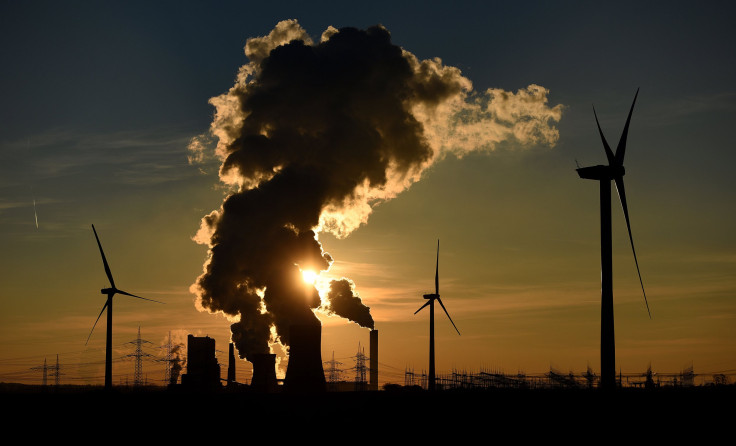CO2 Levels Are The Highest They've Been In 800,000 Years

Last year set the record for highest greenhouse gas emissions the Earth has seen in over 800,000 years, according to data from the World Meteorological Organization. The average concentration of carbon dioxide around the globe reached 403.3 parts per million in 2016, while in 2015 it was only at 400.00 ppm.
A particularly strong El Niño year in 2016, combined with high human greenhouse gas emissions, caused the bump in concentration levels. The past 150 years is now considered the time period during which CO2 levels change the most they ever have. This can be determined by researchers who examine ice cores as a way to construct climate records.
The last time CO2 levels were as high as they are now, records show the climate was two to three degrees Celsius warmer and the sea levels were 10 to 20 meters higher, according to the WMO. Back then, the Greenland and West Antarctic ice sheets no longer existed due to the conditions.
CO2 is the most prominent greenhouse gas but others are present in the atmosphere at levels higher than the pre-industrial levels as well. Methane and nitrous oxide are also higher than they were during the pre-industrial era. While the increase in these two greenhouse gases from 2015 to 2016 was less than the year prior, it was still higher than the average over the last 10 years.
As of September the ppm for CO2 was sitting at 403.38 ppm, as measured from the Mauna Loa observatory. That means CO2 levels are currently more than 145 percent what they were at per-industrial times. Part of the reason it was so high last year was that conditions caused by El Niño, like drought or above average temperatures killed off plants in some regions that are critical to bringing down the CO2 levels. When these plants couldn’t bring down the CO2 levels, more was left in the air than usual, contributing to the higher levels of CO2 that year.
The Paris Climate Agreement set countries the goal of lowering emissions and hopefully slowing the change in climate and the speed of ice melt. But currently the world is still on track to produce some of the fastest emissions in millions of years. In addition to the globe warming, researchers now suspect that sea ice might be melting far faster than they originally suspected.
A new study out of the University of Calgary last week suggested that researchers might be overestimating sea ice by as much as 25 percent. This means more of it is likely melting and contributing to the rise of sea levels.
© Copyright IBTimes 2024. All rights reserved.





















